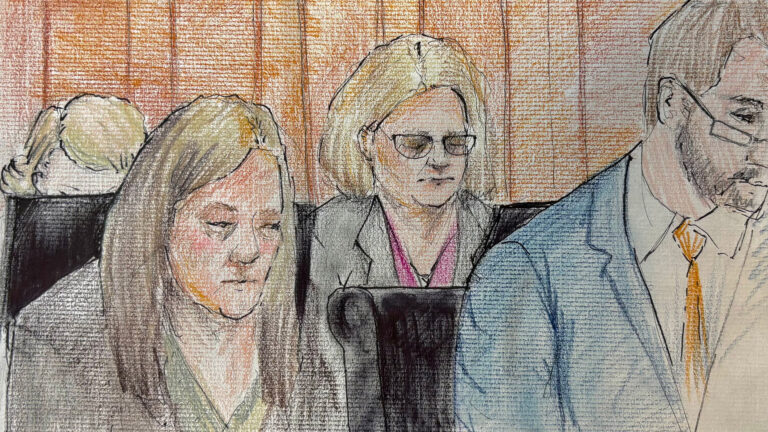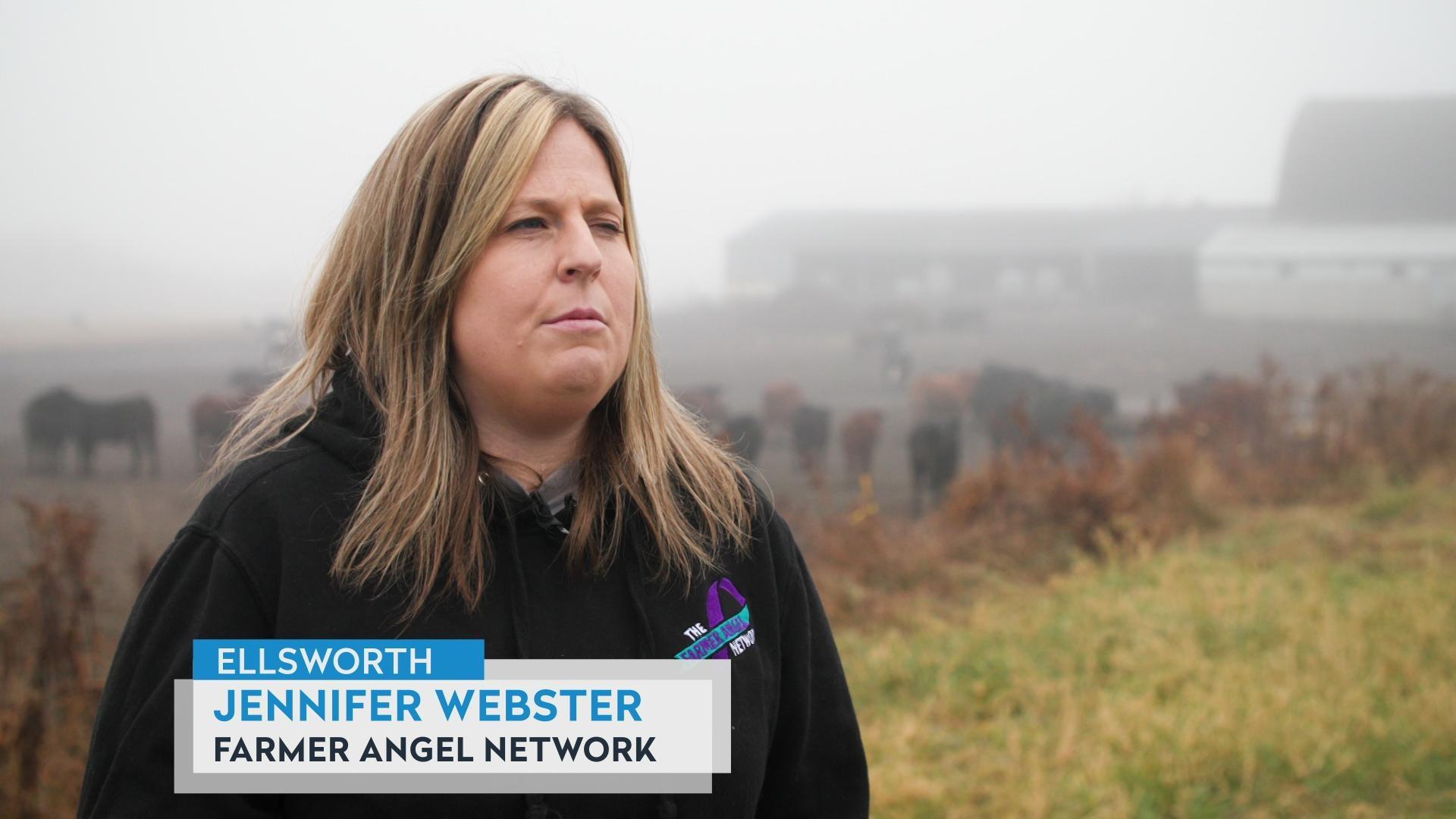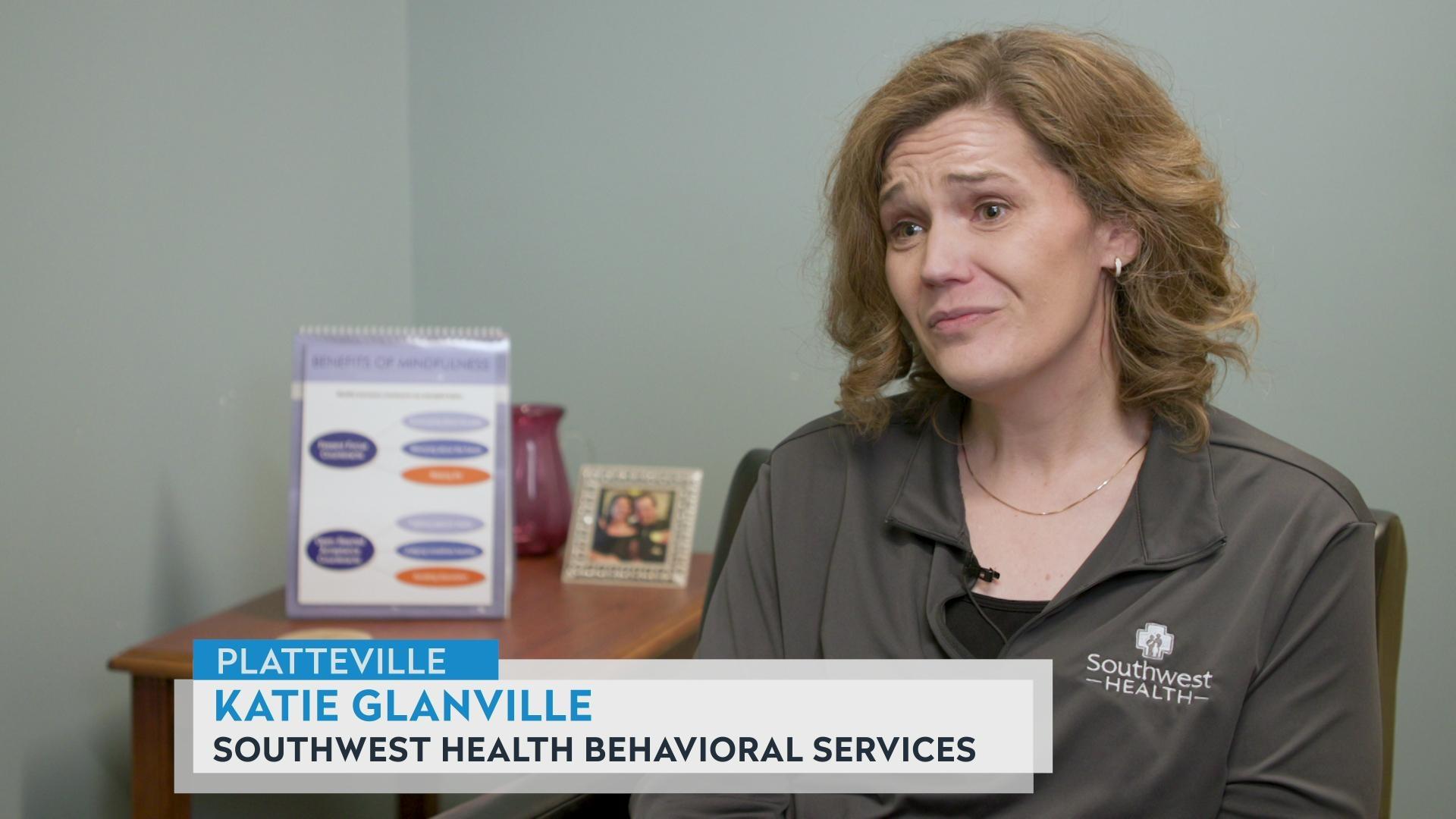Stephen Nick on transports of unhoused people to Eau Claire
By Frederica Freyberg | Here & Now
January 23, 2025 • West Central Region
Eau Claire City Attorney Stephen Nick discusses concerns over officers from multiple law enforcement agencies in western Wisconsin traveling to drop off people experiencing homelessness in the city.
VIDEO TRANSCRIPT
Frederica Freyberg:
Turning to homelessness, for thousands of people in the state without stable housing, knowing where to turn for help can be a big question mark. Oftentimes local law enforcement respond to calls involving someone needing help — perhaps a bed, medical attention, or any number of other services. Recently, the city of Eau Claire has raised concerns about law enforcement in nearby counties whereby they quote, "Drop off unhoused individuals in neighboring communities without a receiving facility, without probable cause, and we believe without lawful authority." Eau Claire City Attorney Stephen Nick wrote that in a letter to the state seeking guidance on this practice. He joins us now. Thanks very much for being here.
Eau Claire City Attorney Stephen Nick:
Thank you for covering this important issue.
Frederica Freyberg:
So is it your sense that the city of Eau Claire has become a quote "dumping ground" as law enforcement from another county described it?
Eau Claire City Attorney Stephen Nick:
Well, we think it's an area of concern, both with the city and the county, that this is a dangerous and detrimental practice. We know that the issue of homelessness is an important one, most specifically for those individuals experiencing lack of shelter and care, and that this is not a best practice, and that there are better options, and that we are asking the attorney general to provide advice and counsel and direction to statewide law enforcement since we know it's an issue, not only in Eau Claire, but around the state.
Frederica Freyberg:
So what exactly is happening and to whom?
Eau Claire City Attorney Stephen Nick:
Well, there are transports, and it's not a particularly new issue, but one that we think is timely to raise now. Individuals that are unhoused are being transported from other cities, but in our region, from other counties that have this type, same type of state-provided options that we do here in Eau Claire County, into the city of Eau Claire, Eau Claire County, and not connected with care. So these are transports that, as we raise them, are being suggested by law enforcement in other counties. And then individuals are being taken here and not connected with care, but left in parking lots or on sidewalks and, in all the instances that we raised, were never connected with care.
Frederica Freyberg:
Why are they doing that, to your knowledge?
Eau Claire City Attorney Stephen Nick:
Why they're doing that, I guess, would be, you know, a question for them. We think there are better options, especially in county seats. And certainly part of the point is, even when those options aren't good, and they often are very difficult in these situations, I think we need to be clear that this is not a good option to drop somebody off who is not familiar with Eau Claire, or whatever that new community might be, and not connecting them with care. And so if there aren't sufficient options within a county or a city, that we be clear that this isn't a good option, so better options are developed locally and regionally.
Frederica Freyberg:
Because what should those other jurisdictions do if there are not in fact other options where they are?
Eau Claire City Attorney Stephen Nick:
Right. It is often difficult, but there are, you know, facilities. We selected specifically other county seats. So there are county facilities, there's a Department of Human Services that law enforcement is very familiar with working. We have those same sort of co-response. So you have human, the ability to connect with Human Services — a lot of times it's mental health or AODA services. There are short-term shelters, whether those are hotel facilities or nonprofit facilities in many communities, and there probably need to be more. But in the instances we cite, hotels were an option, and communities need to know that transporting to another facility is not a best option if they're not connected with care. So they can work on the same sort of agreements we have in Eau Claire to make sure that our local hotels, as needed if our shelters are full, can provide emergency short-term care or shelter.
Frederica Freyberg:
How have you seen the homeless population grow in your area?
Eau Claire City Attorney Stephen Nick:
It is growing, and I'm not an expert in that area, but it is growing, I think, nationwide. It is certainly growing regionally. There was a point-in-time survey that was conducted just last evening in the the broader region. It didn't include just city of Eau Claire, but actually a several county area, and numbers were up considerably. I believe numbers cited were about twice as high as last year. The one emergency shelter facility we have in Eau Claire, while it was recently expanded, still has capacity typically for 53 individuals. Last evening, with the cold temperatures, they, short-term exceeded that and had somewhere in 80 or more individuals there. But that capacity is full. And so when other jurisdictions bring individuals, and these examples were cited, because even in two of them were they called ahead, again, there was no connection with shelter or care, and two of those individuals were out overnight. They did not connect with the emergency shelter and eventually had to receive medical care and treatment.
Frederica Freyberg:
So as you mentioned, you have asked Attorney General Kaul for legal guidance on this practice. What exactly would you like his opinion on here?
Eau Claire City Attorney Stephen Nick:
Well, as we note in the letter, that we think there are both legal and policy issues applicable, and so there's the legal issue of whether jurisdictions have the ability to maintain a custodial transport outside of their jurisdiction. What that simply means is, most law enforcement officers have that awesome responsibility of arrest and detaining individuals only within their jurisdictional limit, only within their city or their county. And it doesn't extend beyond, unless they're in fresh pursuit, they're actively pursuing a crime or criminal that is moving beyond their borders. And that's definitely not occurring here. So one, there's the legal point of whether there's authority to do this, and we want law enforcement — and we think all law enforcement, including in these instances, are a positive act, you know — good actors trying to do the best in difficult situations. So let's clarify that point. So if it's clear that it's not permissible, better lawful options that protect the individual rights and liberties of those being transported are pursued. Second would be policy guidance. So our attorney general also has a law enforcement role and advises, informs, teaches law enforcement on best practices. And so we ask that the attorney general and his office take steps to assist law enforcement in finding better options. Again, our firm belief is that this is not a good option, and if we're clear that it's not then a permissible or best practice, the difficult work can move forward to provide better options in communities and regionally throughout our state.
Frederica Freyberg:
What has Josh Kaul told you about whether or not he expects to give you guidance on this, legally or policy-wise?
Eau Claire City Attorney Stephen Nick:
I've not had any contact directly with Attorney General Kaul or his office yet. That's typical. We've asked previous opinions. They typically take some time, you know, it's a busy office. He, I've seen, has been asked by reporters and indicated that he was reviewing the issue. I know it is an issue around the state, and colleagues — my fellow city attorneys, corporation counsel — have reached out to express shared experiences and support. And so I hope that those voices are raised in other portions of the community, 'cause it most certainly is an issue in the Madison area, in the Milwaukee area and Fox Valley, Wausau, Stevens Point, La Crosse — all are having these same types of challenges.
Frederica Freyberg:
Well, Stephen Nick, Eau Claire city attorney, thank you very much.
Eau Claire City Attorney Stephen Nick:
Appreciate it. Thank you.
 Passport
Passport











Follow Us